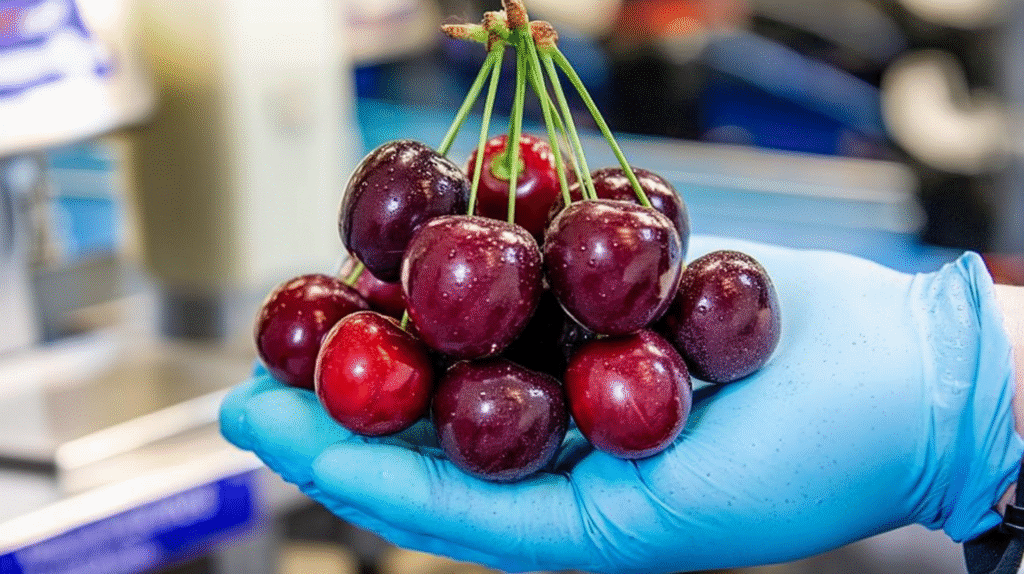In a bid to transform the UK fruit-growing sector, Place UK is spearheading a wave of technological innovation across its farms and processing operations, deploying robotics, AI, and precision systems to improve efficiency and resilience in an era of labour and cost pressures.
Labour shortages and rising wage costs have long bedevilled traditional fruit cultivation. Place UK’s Head of Fresh, Dan Yordanov, recalls that just two decades ago nearly all tasks were manual and physically demanding. Today, the company is progressively automating lower-value, repetitive work so that skilled workers can focus on higher-value tasks.
“Over the past three to four years, technology has transformed how we operate,” he said.
Targeted Investments in Smart Infrastructure
Place UK has made significant capital deployments into its infrastructure and systems. Under the leadership of chairman Tim Place, the firm joined with neighbouring Norfolk farms to construct a £1.1 million water reservoir near Neatishead. The 270,000 m³ storage (roughly equivalent to over 100 Olympic swimming pools) helps secure a stable supply for future operations.
At its Tunstead farm, advanced fertigation and irrigation systems, controllable via smartphone and desktop applications, now allow remote climate and water management—eliminating the need for daily manual inspections.
The company is also harnessing FruitCast, a camera-based AI platform that forecasts yield and harvest timing. By integrating crop imagery with weather models and historical data, the system offers real-time insights that improve labour planning, reduce waste, and sharpen decisionmaking.
Robotics, UV Treatment, and Experimental Harvesting
One of Place UK’s most eye-catching forays is into nocturnal UV robots. Developed in collaboration with Thorvald (a Norwegian robotics firm), the bots navigate pre-mapped routes through strawberry tunnels overnight and emit short bursts of UV light to suppress mildew and fungal spores—thereby reducing chemical use. Because they operate at night, daytime farm activity is unaffected.
However, the adoption of autonomous systems has also forced Place UK to rethink farm design. Aisle widths, layout geometry, and tunnel structures must now accommodate robot mobility and efficiency—a shift that changes how new sites will be planned.
In the realm of harvesting, Place UK is piloting two systems:
- A beneficial insect dispersal machine now replaces manual hand-sprinkling of natural predators (such as Amblyseius and Phytoseiulus) to manage pests.
- A raspberry-picking robot, the Fieldworker 1 (developed with Fieldwork Robotics), aims to emulate the delicate grip of a gecko. Though early trials suggest it still leaves 30–40 percent of fruit for human pickers, the developers regard it as a valuable complement to human labour rather than a replacement.
Yordanov stresses that Place UK’s philosophy is not about displacing its workforce. “From precision irrigation to harvest forecasting, these advancements in tech are making fruit farming faster, more efficient, and less reliant on manual, repetitive tasks.” he asserts.
Smarter Processing, Holistic ROI and the Human Factor
While the processing side of the business may not exhibit dramatic visual changes, subtle automation enhancements are making a difference. Place UK has installed dynamic conveyor controls, upgraded sealing systems, and standardised an Overall Equipment Effectiveness (OEE) metric across facilities to pinpoint bottlenecks and guide investment.
Investment decisions are made under a broad framework known as PQCDSM — assessing productivity, quality, cost, delivery, safety (including environmental safety and morale). Beyond purely financial metrics, projects are evaluated on their effect on employee wellbeing, operational ease, and environmental performance.
By acting as a real-world test bed for novel technologies, Place UK gains early access to innovations while providing developers with valuable, scalable feedback. This collaborative model helps de-risk investments and align tech solutions with real farm conditions.
Looking Ahead: End-to-End Automation and Future Trials
Place UK is actively exploring further automation innovations. Plans are underway to trial robotic platforms that move fruit from polytunnels directly to loading stations or packhouses—edging towards a fully autonomous supply chain.
While the pace of adoption will be gradual, Yordanov is enthusiastic about the evolution: “Going forward, tech will help shape how we design and run our fields. Even something as simple as the width of an aisle can determine whether a robot can operate effectively.”
As Place UK forges ahead with a hybrid model blending technology and human insight, it is positioning itself—and British fruit farming—for a more resilient, sustainable future.


